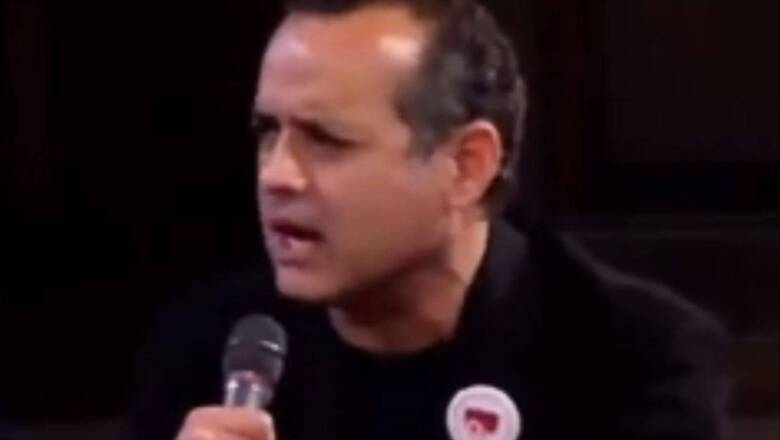
views
A video of Indian historian and journalist Vijay Prashad pointing out US double standards on climate change vis-à-vis developing nations is being widely shared on social media to highlight the “colonial mindset” of the West.
In the video, recorded during Prashad’s participation in a panel discussion at the United Nations Climate Change Conference (COP26), the historian pointed out that the United States makes up 4 to 5% of the world’s population but was still using 25% of global resources.
“You (United States) love lecturing us because you have a colonial mentality. Then there are colonial structures and institutions that lend us money, which is our money. The IMF comes to our societies, you give us our money back as debt and lecture us on how we should live,” Prashad said at the summit held in Glasglow, Scotland, from October 31 to November 13.
Prashad further said that climate change talks at similar summits could not succeed due to this “colonial mentality”. He also talked about the United States attacking China over its coal production and emissions targets.
“US uses 25% of the world’s resources. It outsources all production to China and blames it for being a carbon polluter. China produces your buckets, your nuts and bolts, your phones. Why don’t you produce your own nuts and bolts? And then we can talk about carbon emissions,” he added.
The Marxist intellectual also criticised the climate justice movement, saying it was not “clued in” enough. “Let me tell you something, the climate justice movement is not clued in enough. Its slogan is: ‘We are worried about our future’. Children in Latin America, the African continent, Asia don’t have a future. They don’t even have a present. This is a middle class, bourgeois western slogan. We have to be worried about now,” he said.
Prashad said 2.7 billion people were unable to eat now, and the climate justice movement was asking countries to reduce consumption. “How does this sound to a child who hasn’t eaten in days? The climate justice movement will have no legs in the third world if it is not clued in.”
He also spoke about the International People’s Assembly, a network of 200 political organisations rooted in the global south, putting forth a hard-hitting question to the audience: “We want to tell you what our issues are, but are you willing to listen?”
Prashad also called into question host nation UK’s own colonial past, in particular the Bengal famine of 1940s. “Glasgow was once the UK’s second most important city. When I see cities like Glasgow, I also think of the other side of it. I think of the famines in Bengal, jute workers of Bengal sending jute to Glasgow through the Dundee port, slaves from Ghana… all those profits getting sucked into great cities like London and Glasgow.”
Close to 200 countries accepted a new climate agreement after the COP26 summit in Glasgow. The deal recognises India’s intervention for the world to “phase down” rather than “phase out” fossil fuels. The Glasgow Climate Pact is the first ever UN climate deal to plan to reduce coal, responsible for greenhouse gases with harmful climate impact. Countries, as part of the agreement, have also agreed to meet next year to discuss further carbon cuts so that the goal to limit warming to 1.5 degrees Celsius can be reached.
India, along with other developing nations, had repeatedly called for richer and developed nations to take increased responsibility in mitigating the climate crisis, while assisting developing nations towards their goals.
Prime Minister Narendra Modi, who announced India’s pledge to become a net-zero emissions country by 2070, had also talked about climate finance. He had called for developed nations to fulfil the promised $1 trillion as climate finance, saying this should be tracked the same way as climate mitigation.
Read all the Latest India News here















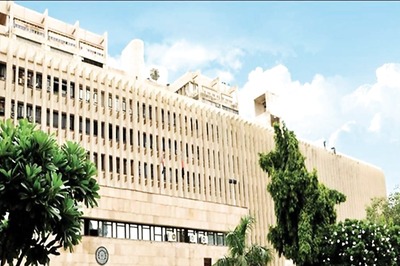
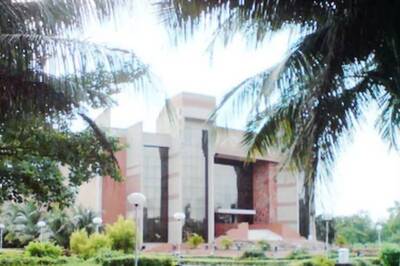
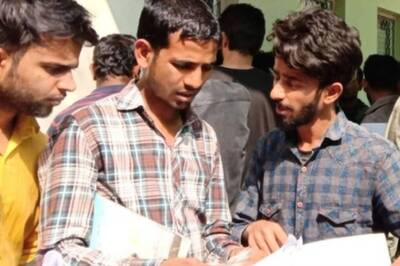
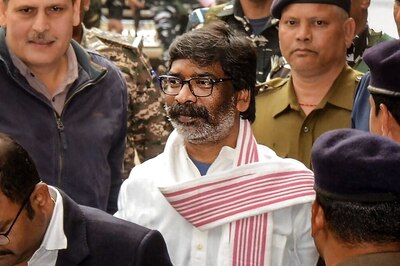
Comments
0 comment